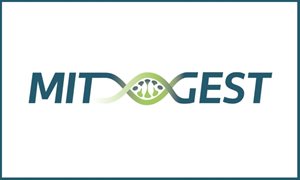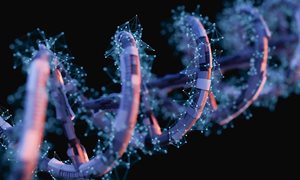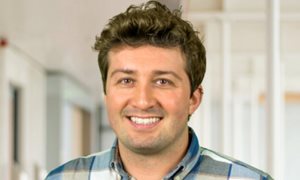
PhD-candidate Melissa van de Wal, theme Metabolic diseases, recently co-authored a comprehensive review in the top-level journal Brain on how Ndufs4 knockout mouse models have been used to unravel the pathomechanism of Leigh Syndrome. This work is a collaborative effort between the Radboudumc, Wageningen University, The Nencki Institute of Experimental Biology (Warsaw), the Amsterdam UMC and the Universitat Autònoma de Barcelona (Spain).
Mitochondria are small cellular constituents that generate cellular energy (ATP) by oxidative phosphorylation (OXPHOS). Dysfunction of these organelles is linked to a heterogeneous group of multisystem disorders, including diabetes, cancer, ageing-related pathologies and rare mitochondrial diseases (MDs). With respect to the latter, mutations in subunit-encoding genes and assembly factors of the first OXPHOS complex (CI) induce isolated CI deficiency and Leigh syndrome (LS). This syndrome is an early-onset, often fatal, encephalopathy with a variable clinical presentation and poor prognosis due to the lack of effective intervention strategies.
Mutations in the nuclear DNA (nDNA)-encoded NDUFS4 gene, encoding the NADH:Ubiquinone oxidoreductase subunit S4 (NDUFS4) of CI induce "mitochondrial complex I deficiency, nuclear type 1" (MC1DN1) and LS in pediatric patients. A variety of (tissue-specific) Ndufs4 knockout mouse models was developed to study the LS pathomechanism and intervention testing. This review discusses the role of CI and NDUFS4 mutations in human MD, and how the analysis of Ndufs4 knockout mouse models has generated new insights into the MC1ND1/LS pathomechanism and its therapeutic targeting.
Related news items

Hans Spelbrink is beneficiary of the MITGEST Doctoral Network which receives 2.6 million euros funding (PhD positions available)
27 September 2022EU has granted the new Doctoral Network “MITGEST” (Quality Control of the Mitochondrial Gene Expression System in Health and Disease), of which Radboudumc is one of the partners, with 2.6 million euros of funding under the Marie Sklodowska-Curie Actions.
go to page
New genetic defect links cell biology and protein glycosylation
10 November 2021 Peter Linders, Dirk Lefeber and Geert van den Bogaart together with international colleagues have recently reported on novel cell biological insights, by identifying a genetic disorder in syntaxin-5 which allowed to unravel a new mechanism regulating intracellular transportation. go to page
RIMLS awards call for nominations
19 October 2021 RIMLS awards several prizes to stimulate and honor our (young) researchers. Upcoming awards are Supervisor of the Year, Best Master Thesis, Best Publication, Best Image and more. Send your nominations now before 24 November 2021. go to page
Systematic analysis of short tandem repeats in 38,095 exomes provides an additional diagnostic yield
22 September 2021 Christian Gilissen and colleagues published in Genetics in Medicine about their work guiding the application of short tandem repeat analysis in clinical exome sequencing. go to page
Young Investigator Award for Alex Garanto
16 September 2021 Alex Garanto has been honored with the 2021 Mary Ann Liebert, Inc. publishers Young Investigator Award go to page